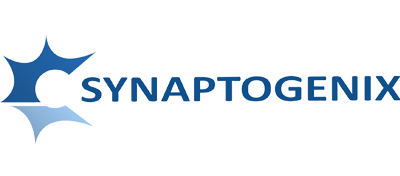NEUROTROPE Announces Positive Top-Line Results From Phase 2 Study of Bryostatin-1 for Moderate to Severe Alzheimer’s Disease
Conference Call to Be Held Today, May 1, 2017, at 8:30 a.m. Eastern Time
NEW YORK, May 1, 2017 /PRNewswire/ — Neurotrope, Inc. (NASDAQ: NTRP) today announced positive top-line results from its Phase 2 study (-202 Study) of Bryostatin-1 in patients with moderate to severe Alzheimer’s disease (AD), a population not commonly targeted in AD clinical trials. Bryostatin-1, a Protein Kinase C epsilon activator that works through synaptic growth factors, as well as anti-amyloid and anti-tangle signaling pathways in the brain, has been shown, in non-clinical efficacy studies, to induce the growth of mature synapses in the brain and prevent neuronal death. Thus, Bryostatin-1 has a fundamentally different biological mechanism of action with the potential for longer lasting effects than the other currently marketed drugs for AD (e.g., donepezil (Aricept®) and memantine (Namenda®)).
This Phase 2 study was the first repeat dose study of Bryostatin-1 in patients with late stage AD (defined as a Mini Mental State Exam 2 (MMSE-2) of 4-15), in which two dose levels of Bryostatin-1 were compared with placebo to assess safety and preliminary efficacy (p < 0.1, one-tailed) after 12 weeks of treatment. The pre-specified primary endpoint, the Severe Impairment Battery (SIB) (used to evaluate cognition in severe dementia), compared each dose of Bryostatin-1 with placebo at Week 13 in two sets of patients: 1) the modified intent-to-treat (mITT) population (consisting of all patients who received study drug and had at least one efficacy/safety evaluation), and 2) the Completer population (consisting of those patients within the mITT population who completed the 13-week assessment).
Top-line results indicate that the 20 µg dose, administered every two weeks, met the pre-specified primary endpoint in the Completer population, but not in the mITT population. Among the patients who completed the protocol (n = 113), the patients on the 20 µg dose at 13 weeks showed a mean increase on the SIB of 1.5 vs. a decrease in the placebo group of -1.1 (improvement of 2.6) (p < 0.07) (n = 80), whereas, in the mITT population, the 20 mcg group had a mean increase on the SIB of 1.2 vs. a decrease in the placebo group of -0.8 (improvement of 2.0) (p < 0.134) (n = 90).
A total of 147 patients were enrolled into the study; 135 patients in the mITT population and 113 in the Completer population. The Alzheimer Disease Cooperative Study Activities of Daily Living Inventory Severe Impairment version (ADCS-ADL-SIV) was a secondary endpoint. The p values for the comparisons between 20 µg and placebo for the ADCS-ADL endpoint were 0.082 and 0.104, respectively, among the patients who completed the protocol in the mITT population. Analysis of secondary and numerous additional exploratory endpoints are ongoing.
Together these results indicate, in this relatively small trial, that Bryostatin-1, at the 20 µg dose, improved outcomes in important dimensions that are impaired in patients with moderate to severe Alzheimer’s disease i.e., cognition and the ability to care for oneself. Since most of the patients in this study were already taking donepezil and/or memantine, the efficacy of Bryostatin-1 was in addition to standard of care.
The safety profile of Bryostatin-1 20 µg was similar to that of the placebo group except for a somewhat higher incidence of diarrhea. Fewer adverse events were reported in patients in the 20 µg group, compared to the 40 µg group. The mean age of patients in the study was 72 years and similar across all three treatment groups.
“The results of this relatively small randomized, double-blind, placebo controlled study of Bryostatin-1 shows that Bryostatin-1 has the potential to positively impact the lives of these severely debilitated patients with moderate to severe AD, a population that is in dire need of new therapies, especially drugs with a new mechanism of action,” said Dr. Susanne Wilke, Neurotrope’s Chief Executive Officer. “We are excited to take the next steps in advancing the development of Bryostatin-1 to treat this serious disease that every year becomes a larger and larger public health burden in the U.S. and around the world. Additional development, with a path to Phase 3, is clearly warranted.”
“These results, which show improvement in patients with moderate to severe Alzheimer’s disease, the population that is generally recognized as the most difficult to treat, provide exciting evidence of a new therapeutic approach potentially could rejuvenate synaptic networks in the brain. Improvements across the range of important manifestations of the underlying neurodegenerative disease, as shown in this Phase 2 study, could potentially represent a shift in the paradigm to treat Alzheimer’s disease,” said Dr. Daniel Alkon, President and Chief Scientific Officer of Neurotrope. “I would also like to thank the National Cancer Institute for their generous donation of the Bryostatin-1 we have used in our clinical trials.”
Further analysis of the data from the Phase 2 -202 Study is ongoing, and Neurotrope plans to present more data and analyses from this study at future medical conferences. Once all of the data and analyses have been reviewed, the Company plans to meet with the Food and Drug Administration (FDA) to address the clinical and regulatory path forward for Bryostatin-1.
Dial-in Information
A conference call will be held today at 8:30 am Eastern Time. The dial-in information to access the live call is listed below:
Participant Toll Free Dial-In Number:
(877) 245-7303
Participant International Dial-In Number:
(478) 219-0731
Conference ID:
16070779
The dial-in information to access the call replay, available for 30 days after the live call, is listed below:
Replay Toll Free Dial-In Number:
(800) 585-8367
Replay International Dial-In Number:
(404) 537-3406
Conference ID:
16070779
About Neurotrope
Neurotrope is at the forefront of developing a novel therapy to treat and potentially reverse moderate to severe Alzheimer’s dementia and other neurodegenerative diseases. The Company’s world-class science is a paradigm shifting approach that treats some of the underlying causes of Alzheimer’s disease.
The scientific basis of our treatment is activation of Protein Kinase C isozymes ε and α by Bryostatin-1, a natural product, which in mouse Alzheimer’s disease models was demonstrated to result in repair of damaged synapses as well as synaptogenesis, the induction of new neuronal networks, reduction of toxic beta-amyloid generation, prevention of neuronal death, and enhancement of memory and learning, thus having the potential to improve cognition and behavior in Alzheimer’s dementia.
Neurotrope has conducted a Phase 2 trial of Bryostatin-1 in the treatment of moderate to severe Alzheimer’s dementia, as well as preclinical studies of Bryostatin-1 as a treatment for Fragile X Syndrome, Niemann-Pick Type C disease and Rett Syndrome, three rare genetic diseases for which only symptomatic treatments are currently available. The FDA has granted Orphan Drug Designation to Neurotrope for Bryostatin-1 as a treatment for Fragile X Syndrome. Bryostatin-1 has undergone testing in over 1,500 people establishing a large safety database.
Forward-Looking Statements
Any statements contained in this press release that do not describe historical facts may constitute forward-looking statements. These forward-looking statements include statements regarding the Phase 2 study and further studies, and continued development of use of Bryostatin-1 for Alzheimer’s dementia and other cognitive diseases. Such forward-looking statements are subject to risks and uncertainties and other influences, many of which the Company has no control over. These statements are subject to the risk that further analyses of the Phase 2 data may lead to different interpretations of the data than the analyses conducted to date and/or may identify important implications of the Phase 2 data that are not reflected in these statements. Clinical trial data are subject to differing interpretations, and regulatory agencies, medical and scientific experts and others may not share the Company’s views of the Phase 2 data. There can be no assurance that the clinical program for Bryostatin-1 will be successful in demonstrating safety and/or efficacy, that we will not encounter problems or delays in clinical development, or that Bryostatin-1 will ever receive regulatory approval or be successfully commercialized. Actual results and the timing of certain events and circumstances may differ materially from those described by the forward-looking statements as a result of these risks and uncertainties. Additional factors that may influence or cause actual results to differ materially from expected or desired results may include, without limitation, the Company’s inability to obtain adequate financing, the significant length of time associated with drug development and related insufficient cash flows and resulting illiquidity, the Company’s patent portfolio, the Company’s inability to expand the Company’s business, significant government regulation of pharmaceuticals and the healthcare industry, lack of product diversification, availability of the Company’s raw materials, existing or increased competition, stock volatility and illiquidity, and the Company’s failure to implement the Company’s business plans or strategies. These and other factors are identified and described in more detail in the Company’s filings with the SEC, including the Company’s Annual Report on Form 10-K for the year ended December 31, 2016. The Company does not undertake to update these forward-looking statements.
Please visit www.neurotropebioscience.com for further information.
For additional information, please contact:
Neurotrope Bioscience, Inc.
Jeffrey Benison, Director of Corporate Communications
973.242.0005 Ext. 101
jbenison@neurotropebioscience.com

